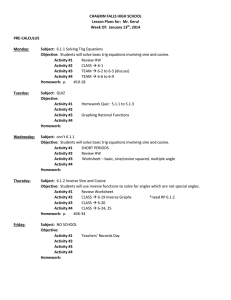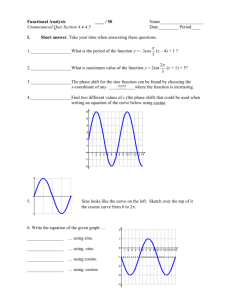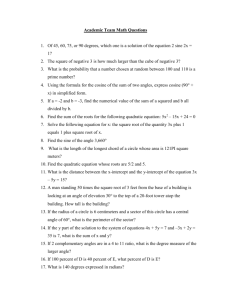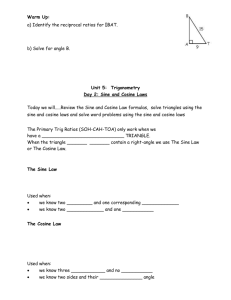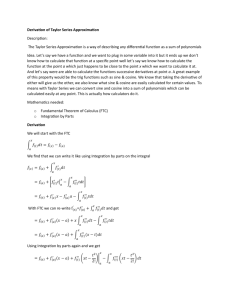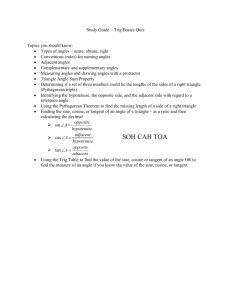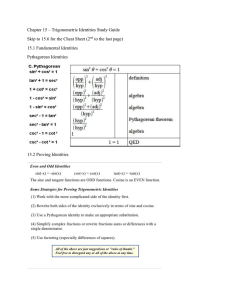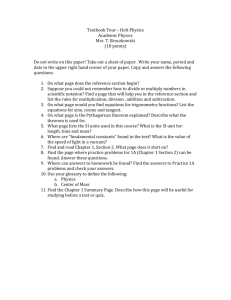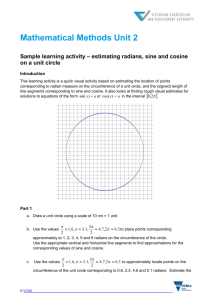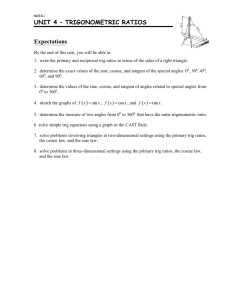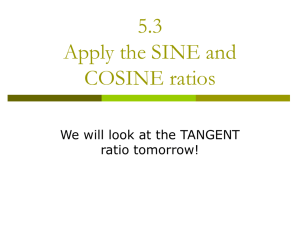Sine & Cosine Functions (Part 1)
advertisement
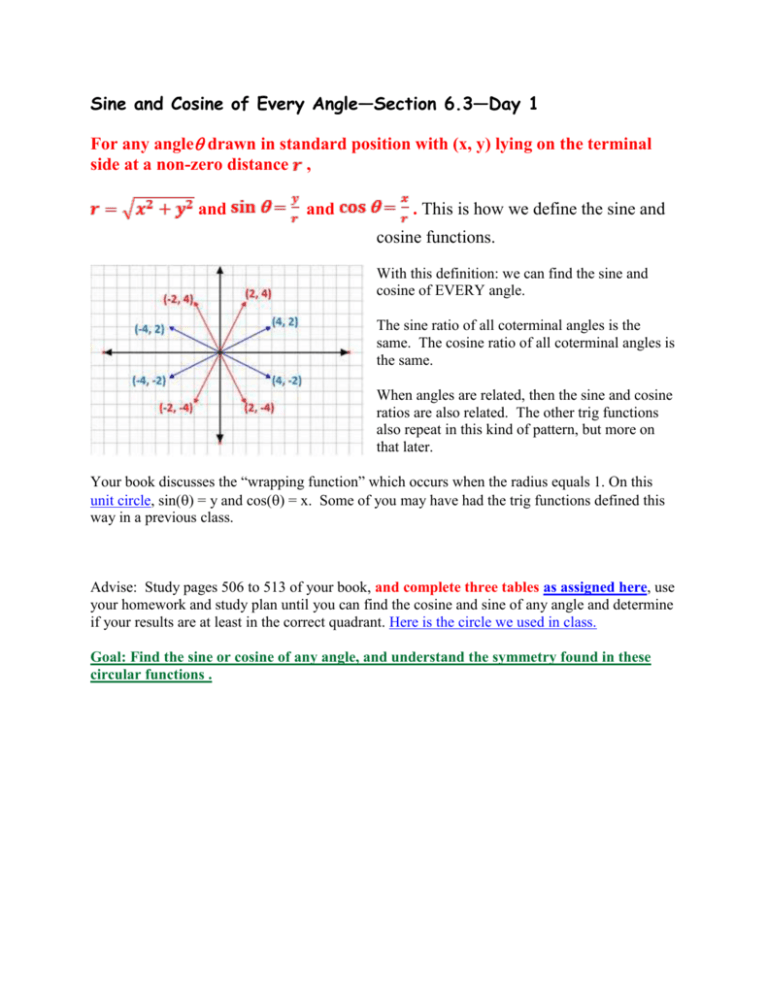
Sine and Cosine of Every Angle—Section 6.3—Day 1 For any angle drawn in standard position with (x, y) lying on the terminal side at a non-zero distance , and and . This is how we define the sine and cosine functions. With this definition: we can find the sine and cosine of EVERY angle. The sine ratio of all coterminal angles is the same. The cosine ratio of all coterminal angles is the same. When angles are related, then the sine and cosine ratios are also related. The other trig functions also repeat in this kind of pattern, but more on that later. Your book discusses the “wrapping function” which occurs when the radius equals 1. On this unit circle, sin() = y and cos() = x. Some of you may have had the trig functions defined this way in a previous class. Advise: Study pages 506 to 513 of your book, and complete three tables as assigned here, use your homework and study plan until you can find the cosine and sine of any angle and determine if your results are at least in the correct quadrant. Here is the circle we used in class. Goal: Find the sine or cosine of any angle, and understand the symmetry found in these circular functions .
